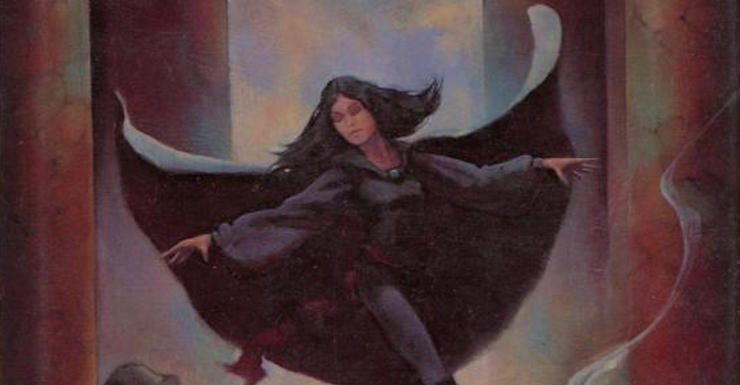Today’s joyful romp through history: women SF writers whose names begin with H and who debuted in the 1970s1. There also two previous installments in this series, covering women writers with last names beginning with A through F and those beginning with G.
Vicki Ann Heydron
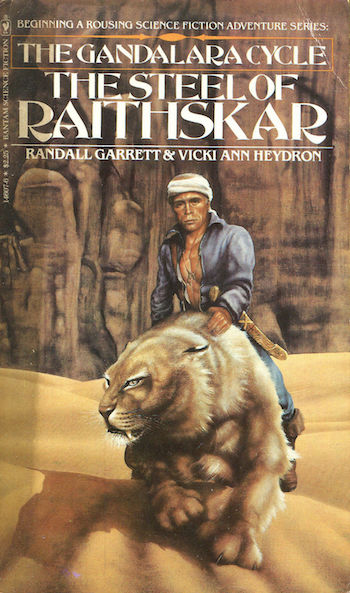
Vicki Ann Heydron wrote most of her published fiction in collaboration with her husband, Randall Garrett. Best known of their collaborations is the seven-volume Gandalara Cycle (1981–1986), in which a dying intellectual of our world is transported to a new, young body in a strange desert realm called Gandalara. Although both spouses are credited, Garrett was reportedly in a coma for much of the period in which the series was published. I rather suspect that unconsciousness would have significantly impeded active participation. Presumably, whatever Garrett’s role in plotting the series, Heydron did most of the actual writing. The Steel of Raithskar is the first volume in the series and that is where I recommend you start.
P. C. Hodgell
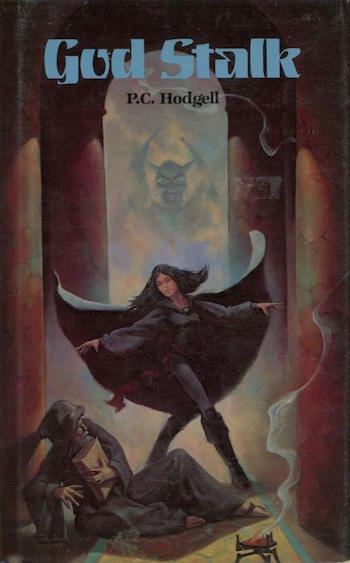
Clarion graduate P. C. Hodgell has been active since the late 1970s. She is the author of the long-running Chronicles of the Kencyrath (nine volumes since 1982). Readers of a certain vintage may have vivid memories of the twelve-year desert between the third book in the series, Seeker’s Mask, and the fourth, To Ride a Rathorn. Currently she has the active support of a publisher whose name escapes me. Since the series is continuity-heavy, you will want to start with the first volume, 1982’s God Stalk, in which an amnesiac woman of a race of staunch monotheists finds herself in a city of a thousand gods—none of whom seem to be particularly helpful gods…
Cecelia Holland
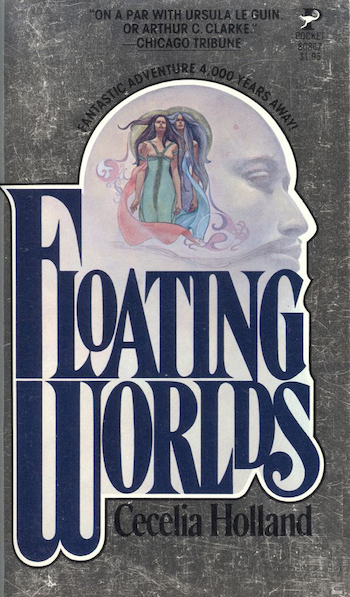
Cecelia Holland is best known as a writer of historical novels, of which there are almost three dozen. Her efforts in the SF field have included reviews and essays; she has also written at least three speculative fiction novels to date. I am a terrible person because I have thus far managed thus far to miss reading two of them. On the plus side, that does make it easier to decide which book to recommend: 1976’s Floating Worlds. In this novel, an unconventional diplomat does her best to preserve peace in a Solar System divided between Earth, Martians, and the outer planet Styths2.
H.M. Hoover
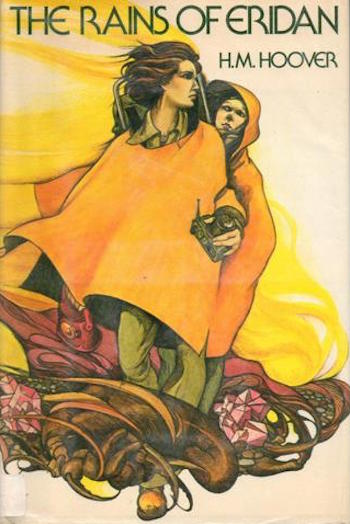
H.M. Hoover is a prolific author whose work I have mostly ignored because I aged out of her target market about the time she began getting published. In addition, for a time it was difficult to find recent editions of her work, something The Society for Preservation and Dissemination of Books We Love to Read3 is currently working hard to address. Nevertheless, I have read a few. The best of those I have read was Rains of Eridan, in which a young biologist races to find the cause of some alarming behavioural changes in an exploring party before it is too late.
Monica Hughes
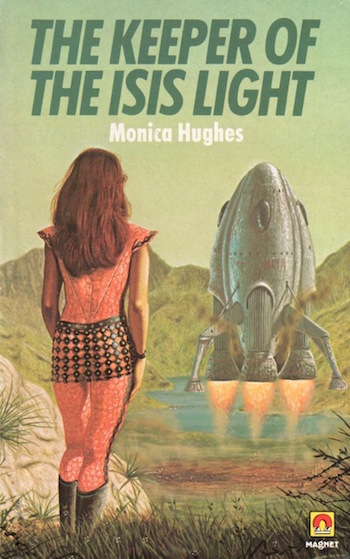
English-born and Canadian by choice, Monica Hughes was active from the mid-1970s until her death fifteen years ago. The Isis trilogy may be her most famous work. The first novel—and I think it’s pretty clear by now that I am borderline pathological about starting at the beginning when possible—is The Keeper of the Isis Light, in which a young woman, for most of her life the only human on the planet Isis, must deal with the unexpected arrival of colonists from Earth.
* * *
As to my habitual failures to be widely read, this time round they begin with Marilyn Hacker, of whose work I have been cognizant for roughly half a century. This has not, alas, spurred me to track down any of her books. Other authors of whom I am profoundly but curably ignorant include:
1: This series only covers women whose published careers began between 1970 and 1979. If their career began before 1970 or after 1979, then they fall outside my target range. Because I am concentrating on women whose surnames begin with H, I am excluding all women whose surnames begin with A through G and I through Z. For example, Jo Clayton was a fine author, but since C is not H, she is not listed here. Well, aside from this footnote.
2: Possibly not recommended for Jame Retief fans, as (unlike the late Keith Laumer) Holland is a keen supporter of the notion that women are people. I do wonder how well Floating Worlds would work as a paired review with Alan E. Nourse’s Raiders from the Rings.
3: I know nothing about the Society for Preservation and Dissemination of Books We Love to Read beyond their name and the fact they publish Hoover’s current editions. I welcome further information.
In the words of Wikipedia editor TexasAndroid, prolific book reviewer and perennial Darwin Award nominee James Davis Nicoll is of “questionable notability.” His work has appeared in Publishers Weekly and Romantic Times as well as on his own websites, James Nicoll Reviews and Young People Read Old SFF (where he is assisted by editor Karen Lofstrom and web person Adrienne L. Travis). He is surprisingly flammable.










